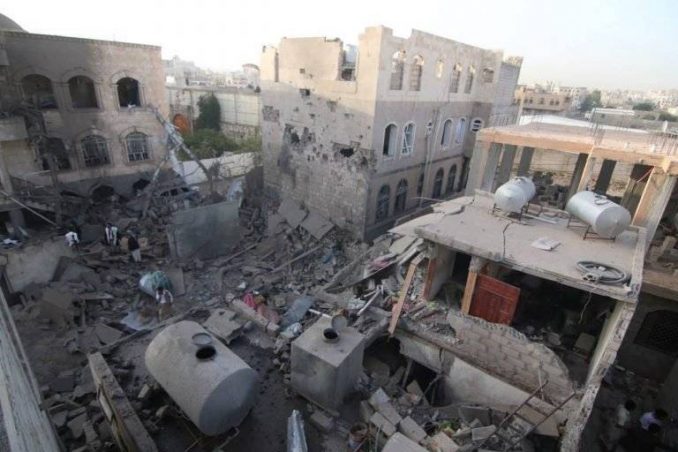U.N. ignores genocidal war on Yemen
Saudi Arabia carried out so many terror attacks with Washington’s support the last few days in February that this writer had trouble tallying all the incidents. A U.N. Security Council meeting did not address these genocidal attacks and instead chose to focus on rallying support for a war against Iran.
Five young girls between the ages of 7 and 15 died after airstrikes targeted a farm in a village north of Hays in Hodeidah province on Feb. 28. The day before, terror strikes killed another four civilians in Hodeidah. In Nehm, U.S.-backed airstrikes murdered a mother and her two sons in their home.
A total of six died and four were injured in an attack in Saada, including women and children. In a separate Saada attack, paramedics and news reporters had to flee as Riyadh carried out double-tap strikes on a civilian home while rescuers and news personnel entered the scene. This raid left 19 people dead and wounded, including one paramedic.
These airstrike terror attacks in various Yemeni provinces killed dozens — nearly 40 — just during two days.
Silence from U.N. Security Council
The timing of these attacks is particularly heinous. On Feb. 26, Britain proposed a resolution in the U.N. Security Council blaming Iran for supporting so-called “terror activities” in Yemen. Although the measure did not pass due to a veto from Russia, 11 out of 15 members supported its content. China and Kazakhstan abstained while Bolivia voted against the resolution.
If passed, this resolution could open the door to a NATO-led war against Iran. U.S. Ambassador to the U.N. Nikki Haley backed up this possibility, threatening “unilateral action” against the Islamic Republic. “If Russia is going to continue to cover for Iran, then the U.S. and our partners need to take action on our own. If we’re not going to get action on the council, then we have to take our own actions,” Haley told reporters. (reuters.com, Feb. 26)
Russia instead proposed a counter resolution which upholds the devastating sanctions against Yemen but removes any mention of Iran. The U.N. Security Council approved that measure unanimously.
Disturbingly (although not shockingly), the Security Council did not address Saudi Arabia’s war crimes and genocidal actions in Yemen. Nor did it mention the six-point reconciliation plan that Ansarullah — which the Western media reduce to simply “the Houthis” — submitted to the council.
Covering up war crimes
The British resolution was a clear attempt to skirt the West’s own war crimes in Yemen.
Far from a mere passive observer, the United States provides both military and intelligence support to Emirati and Saudi-backed forces. Saudi airstrikes and ground operations have killed and injured more than 35,000 people in the past three years.
U.S. forces provide intelligence support for selecting airstrike targets. Riyadh’s airstrike campaign frequently targets markets, homes, cars, media crews, farms, factories, prisons and even ambulance crews entering bomb sites. This affirms Washington’s direct participation in gruesome war crimes and arguably genocide against the Yemeni people.
U.S. Navy ships enforce the siege and blockade throughout the Red Sea by prohibiting aid and cargo ships from docking in resistance-held territory, such as the Hodeidah port, where Saudi airstrikes destroyed the port’s cranes.
Over 8 million Yemenis face direct famine due to the land, air and sea blockade, which severely restricts food, aid, salaries, flow of movement and vital medical supplies. Saudi Arabia demanded the closure of Yemen’s main airport in Sana’a and subsequently destroyed its infrastructure. A resultant cholera epidemic affecting 1 million people may soon be exacerbated during the rainy season, which starts in April.


